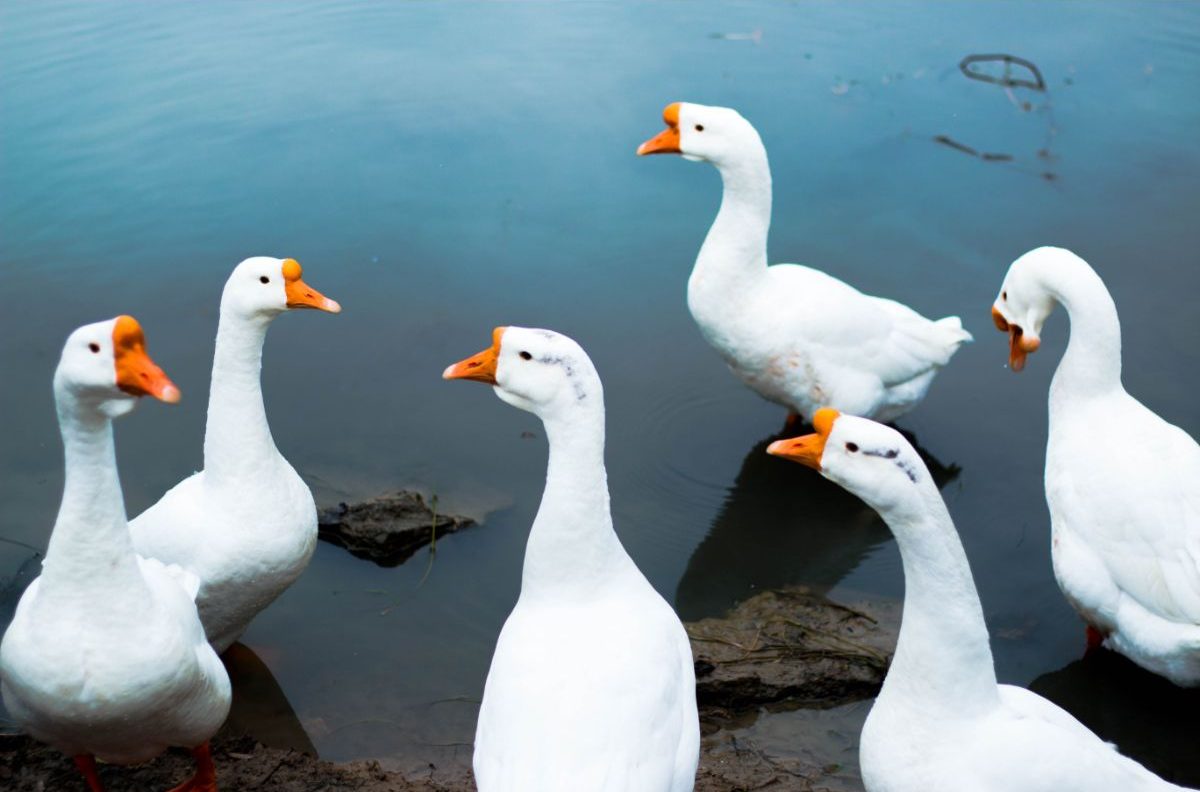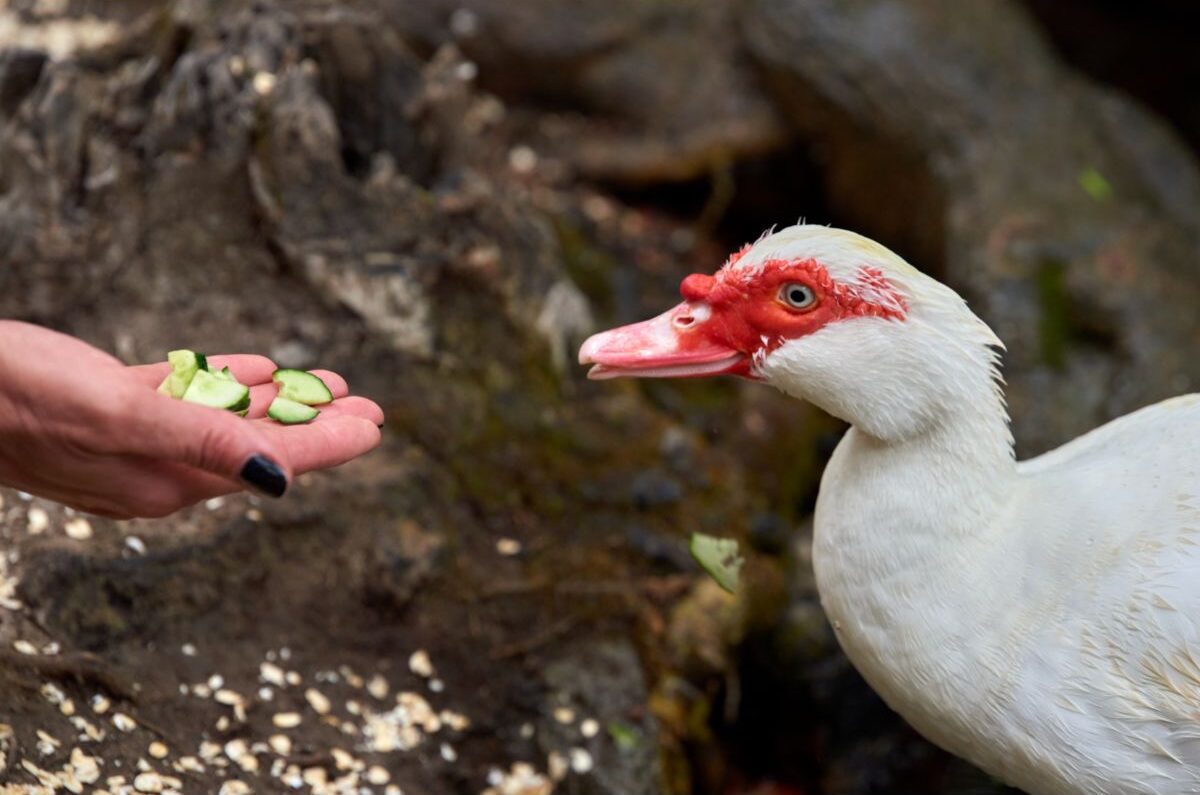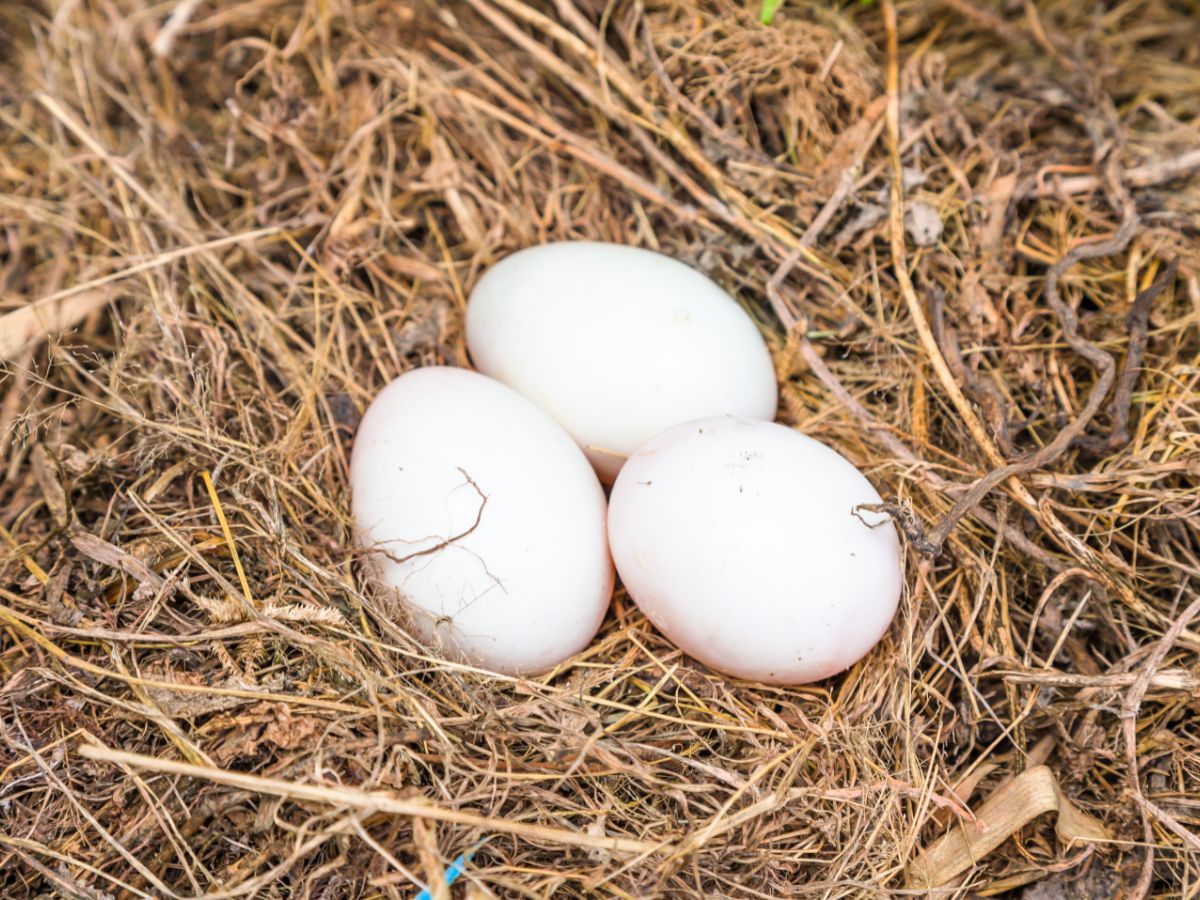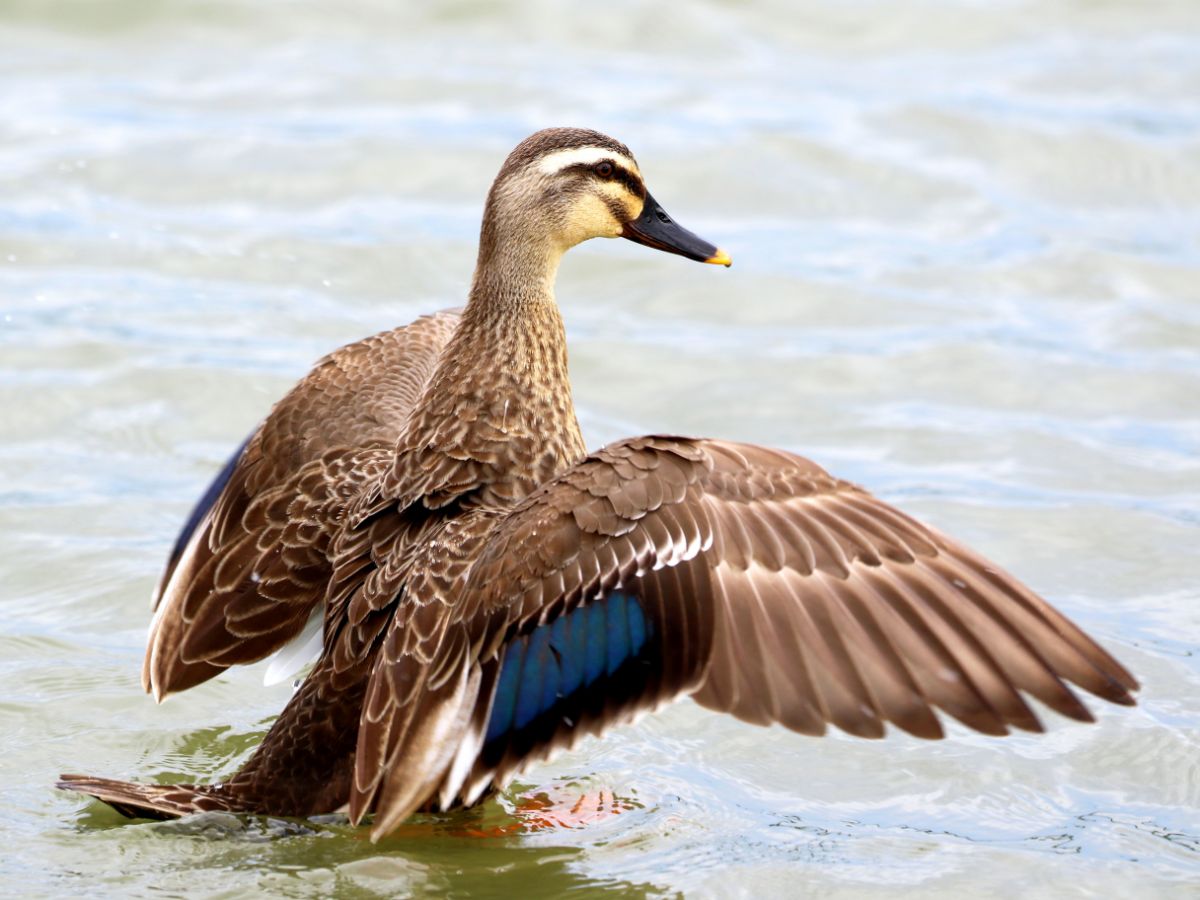If you are a backyard poultry keeper with room to expand, you may be getting more birds – of a different species. But you are not sure whether there will be any problems between chickens and geese and how many geese to get. So you want to know: can you keep chickens and geese together?
You can keep chickens and geese together, provided you cater to each species’ particular needs and keep several members. A single goose with chickens will get lonely, and a gander will try mating with hens and injure them. Multiple geese are effective guard animals for a flock of chickens.
You may have heard of people keeping a single goose or gander with their chickens to act as a guard bird, and now you’re considering doing so, too. But you have decided to research the matter first. We’re glad you’ve done so because there are some things you need to know about keeping these species together.
Contents
Can Chickens And Geese Live Together?
Chickens and geese generally get on well, mainly if they have grown up together and have plenty of space. A mixed flock can offer a lot of fun, with their different sounds and personalities.
However, ganders can be dangerous for hens if they try mating with them; geese love splashing in water, resulting in a mess and potential chilling of chickens, they have different feed needs, and geese can get aggressive during the breeding season.
If you pay attention to these differences and plan accordingly, you can keep a mixed flock of chickens and geese.
Predator Protection And The Myth Of The Guard Goose
The biggest reason people want to keep geese with chickens is to protect against predators. While geese will raise the alarm when danger approaches and can be aggressive in driving off predators such as rats, skunks, and weasels, the idea of keeping a single “guard goose” imprinted on your chicken flock is a myth.
Geese behave differently from chickens, and a single goose will be lonely. In addition, if you keep a gander (male goose) without a female to mate with, it will turn its attention to your hens, with probably fatal results.
Moreover, a goose won’t protect an unrelated species at the cost of its own life. They will defend their turf and their young, which means anything one goose can do, several geese can do better. Make it a mixed flock.
Be aware that geese will likely drive off visitors and the pizza delivery guy aggressively as they respond to unusual stimuli. You will have to find ways of dealing with this issue. However, they will be friendly toward you.
Ganders Can Be Dangerous For Hens
Ganders (male geese) can be dangerous for hens if they try to mate with them, as they have a large penis (unlike roosters), and they can damage the hens to the point of killing them by causing a prolapsed vent. Either keep only female geese or ensure that you have enough female geese, so the ganders aren’t turning to the hens.
Mixed Brooders – Raising Chicks And Goslings Together
While both chicks and goslings need a warm, draft-free area with fresh water and food, mixing them is not a good idea. Goslings love playing in the water and will quickly make an absolute mess of their brooding area, with no ill effects to them but dire effects (chilling) to any chicks. Keep them separate until they are older. For this reason, you won’t get geese to imprint on chickens.
Food Requirements For Chickens And Geese
Chickens and geese have different feed needs and require different nutrients at particular life stages. While you can keep a mixed flock, you may need to separate them at certain times to ensure they get suitable feed.
Chickens are omnivores who will forage for bugs and weeds, whereas geese graze on grass. They will only compete for grain during winter when the grass is scarce or non-existent. If pasture quality is low, you must supply supplemental feed to your geese, and a breeding goose will need special feeding.
Goslings can be fed a chick starter and later a chick grower plus cracked grains. However, ensure that it is unmedicated, as chicken medication can be toxic to geese.
Housing Needed By Chickens And Geese
Chickens require a safe coop to shelter in at night or when it’s raining. You should provide perches for them to roost on, as their instinct is to fly up to a high place at night and grip onto the roost (or branch) to stay out of reach of predators.
Conversely, geese don’t generally take shelter even in the worst weather, and you will see them contently grooming in blowing snow. However, they will need cover at ground level at night, as their night vision is inferior, and this is when they are vulnerable to predators. They will probably do fine sheltering on the ground in the run.
Nesting Boxes For Chickens And Geese
You don’t want chickens brooding goose eggs or vice versa. The latter is a problem, as a chicken egg under a goose will break and foul all the goose eggs, causing them to rot instead of developing. Because geese generally lay eggs on the ground, provide space for them to nest at ground level, and have elevated nest boxes for the hens to use. Check to see that eggs aren’t getting mixed up.
Behavioral Differences Between Chickens And Geese
Geese may get aggressive in spring and early summer when laying, incubating, and hatching eggs. Avoid adding new geese now, and give your chickens and geese plenty of room for separate nesting areas. Geese will chase a chicken that gets in the way but won’t harm it – but provide enough space.
If you are concerned that your rooster and any gander you keep won’t get on, don’t worry. However mean and grumpy they are toward members of their own species, roosters and ganders will generally get on, as they are not competing for mates or food.
Geese Love Playing In Water
Geese love splashing and bathing in water, causing a mess in the surroundings and nearby birds. As a result, your chickens will get chilled in winter conditions, as they lack the down and fat layers that geese have. Keep a separate swimming area for your geese away from your chickens. Be ready to clean the coop and run more often to prevent harm to your chickens.
Your geese will be miserable if you don’t provide them with enough water to play in. Additionally, they need water deep enough to dip their heads into to keep their nostrils clean.
Conclusion
You can keep chickens and geese together provided you pay attention to their specific needs and ensure that members of each species have conspecifics to keep them company. Geese will graze on grass and defend their turf, incidentally including the chickens, against many dangers.
If you want to know which goose breeds are especially good for beginners, you can read this article with the top 11 goose breeds for beginners.




